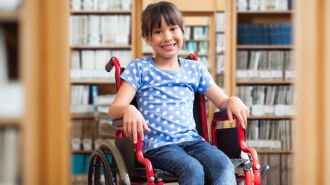- Our studies
- Our research
- Publications and resources
- Data access and training
- About
- News
- Events
- Get in touch
- Join our mailing list
Welcome to our news and blogs section. Here you’ll find the latest developments and insights from across our longitudinal studies.
Growing Up in the 2020s is the country’s first comprehensive long-term study tracking adolescents’ development and educational outcomes following the Covid-19 pandemic.
Delegates from the scientific community, government departments, members of the third sector and other stakeholders were invited to give their ideas and discuss scientific priorities for the data collection instruments for the Age 60 Survey of the National Child Development Study (NCDS).

This research project investigates the influence of work and family status on exercise and sedentary behaviour in childhood and adult life.

This research project aimed to apply automatic content analysis tools to transcribed self-reported essays, written by study members at age 11 and age 50 in order to undertake quantitative analysis of the words and concepts expressed by respondents.
An open consultative conference was held at the UCL Institute Of Education. It was open to all interested parties, including representatives of the MCS funders.

For the first time in the history of the UK birth cohort studies, a short measure of parents’ financial assets and debts is available in childhood (Millennium Cohort Study (MCS), age 11) alongside measures of income. This research project aims to understand how parents’ long-term financial position shapes their children’s outcomes from an early stage.

Incorporating seven projects, this programme explored two key themes which are both central to government policy: healthy lifestyles and the transmission of advantage and disadvantage from one generation to the next.

The fifth MCS survey took place during 2012 when participants were aged 11. Our initial findings from the age 11 survey cover a range of themes, from family structure to child cognitive development.

This research project tested how neighbourhood, family poverty and other adverse circumstances are related to children’s wellbeing, as gauged through emotional and behavioural outcomes.

This research project analysed data from the first four surveys of the Millennium Cohort Study, at ages 9 months, 3 years, 5 years, 7 years and 11 years. It looked specifically at factors related to parents’ contact with their children after separation, and how separation affects parenting activities and capabilities.

The aim of the research project was to enhance our understanding of disabled children’s early cognitive development and their subsequent educational transitions.
Ryan Bradshaw
Senior Communications Officer
Phone: 020 7612 6516
Email: r.bradshaw@ucl.ac.uk